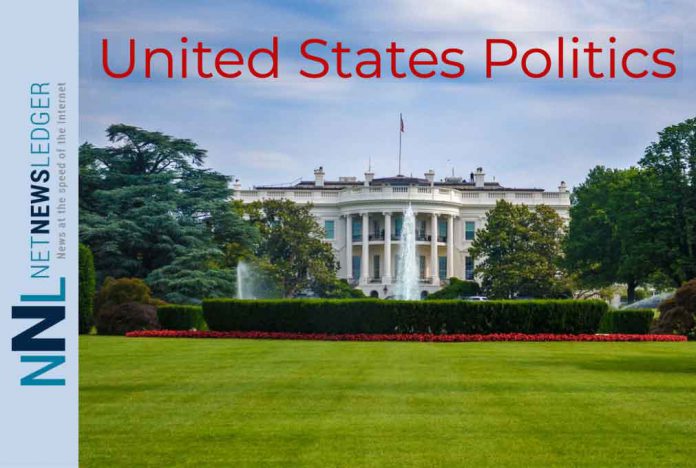THUNDER BAY, ON – As Americans head to the polls today, the outcome of the presidential race between Republican candidate Donald J. Trump and Democratic candidate Vice President Kamala Harris could have profound impacts on Canada’s economy, trade, immigration policies, and environmental goals.
With the latest polls showing an extremely close race, Canadians are watching closely to understand how each potential presidency might affect our country, especially here in Northwestern Ontario.
One of the issues not making it to the top of the list has been the softwood lumber issue, and that has major impact to Canada’s forest sector.
Trade Relations: Potential Shifts in the USMCA
Trump Presidency: During his previous administration, Trump renegotiated NAFTA, resulting in the United States-Mexico-Canada Agreement (USMCA). If he returns to office, Trump may push for additional revisions to the trade agreement, potentially making it more challenging for Canadian businesses. His “America First” policies might lead to increased tariffs on Canadian products, particularly in key sectors like steel, aluminum, and lumber, which are critical exports for Canada. For Northwestern Ontario, this could impact industries in Thunder Bay and surrounding areas that rely on cross-border trade.
Harris Presidency: Kamala Harris is expected to take a more collaborative approach toward Canada on trade. She has shown support for fair trade policies that benefit both countries. A Harris administration may seek to build upon the USMCA in a way that bolsters the North American supply chain, benefiting Canadian exporters. She’s also likely to avoid tariff escalations, which would provide stability for businesses in Ontario and across Canada.
Climate Change and Environmental Policies: Cooperation or Conflict?
Trump Presidency: Trump’s previous stance on climate change included pulling the U.S. out of the Paris Agreement and rolling back environmental protections. A second Trump term could result in less coordination with Canada on climate initiatives. For Canadians, especially those in Northern Ontario where environmental concerns are paramount, this could hinder cross-border efforts to protect the Great Lakes and address emissions. Canada may find itself under pressure to compete with less stringent environmental regulations, impacting Canada’s climate targets.
Harris Presidency: As Vice President, Harris has been vocal about the need for strong climate action. A Harris presidency would likely foster closer collaboration with Canada on climate goals, including emissions reduction and protecting shared ecosystems like the Great Lakes. Her administration may align with Canada on transitioning to renewable energy, which could open up cross-border partnerships and investments, creating opportunities in green technology sectors that could benefit Ontario’s economy.
Energy Policy and Cross-Border Pipelines
Trump Presidency: Trump has previously supported major pipeline projects, such as Keystone XL, which was ultimately canceled by President Joe Biden. A second Trump term might renew U.S. backing for Canadian oil projects, potentially revitalizing pipeline proposals. While this could benefit Canada’s energy sector, it would also face domestic opposition from environmental groups in both countries. In Northwestern Ontario, where many communities value environmental sustainability, the return of such projects might spark local debates on balancing economic growth with environmental protection.
Harris Presidency: Harris is likely to prioritize clean energy and may impose stricter regulations on fossil fuel infrastructure, limiting the prospects for cross-border pipelines. While this could complicate Canada’s oil export plans, it would align with Canada’s own climate goals. For Ontario, this could mean an increased focus on renewable energy and green infrastructure, potentially attracting U.S.-backed investments in clean energy projects that benefit the region.
Immigration Policies: Potential Impacts on Canadian Migration and Labor Markets
Trump Presidency: Trump’s previous hardline stance on immigration led to restrictions that affected foreign workers, students, and refugees. A return to this approach could increase migration pressures on Canada, with more people seeking work or asylum here. Thunder Bay and other communities that rely on skilled immigrants may see an influx of talent, which could boost local economies but also strain resources and housing availability.
Harris Presidency: Harris has supported more inclusive immigration policies, which could make the U.S. a more attractive destination for international migrants. This might relieve some pressure on Canada’s immigration system but could also intensify competition for talent between the two countries. For Northwestern Ontario, where skilled labor shortages are a challenge, a more balanced U.S. immigration approach could help stabilize the regional workforce.
Indigenous Relations and Cross-Border Collaboration
Both Canada and the U.S. face complex issues concerning Indigenous rights, land, and resource management. A Trump administration might focus less on Indigenous collaboration, which could strain cross-border Indigenous relations, especially around environmental protection.
A Harris administration, however, would likely foster Indigenous rights and protections, enhancing cooperative efforts on shared lands and waterways across the border, including areas significant to Indigenous communities in Northern Ontario.
Economic Policy and the Canadian Dollar
Trump Presidency: Trump’s economic policies could lead to fluctuations in the Canadian dollar, particularly if he implements protectionist measures or further tax cuts that spur inflation. A weakened Canadian dollar would make exports more competitive but could increase costs for Canadians importing U.S. goods, impacting Ontario consumers and businesses alike.
Harris Presidency: Harris is expected to adopt policies that prioritize stability and aim to control inflation, which may keep the Canadian dollar more stable. A steady U.S. economy under Harris would likely benefit Canada, especially in sectors heavily tied to the American market, like manufacturing and agriculture.
What’s at Stake for Canada and Northwestern Ontario?
With such a close race, the potential outcomes could either strengthen or complicate Canada’s relationship with its largest trading partner. For Northwestern Ontario, the impacts will be felt in areas ranging from trade and the environment to labor markets and Indigenous rights.
A Harris administration would likely mean closer cooperation with Canada, aligning on issues like climate and fair trade. On the other hand, a Trump administration could bring economic opportunities for some sectors but pose challenges in terms of environmental policy and trade tensions.
As Canadians watch the results unfold, it’s clear that this U.S. election will shape not just America’s future but Canada’s as well.







